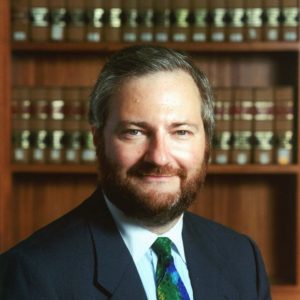CURRENT MONTH (November 2019)
Professional Responsibility
Eighth Circuit Ducks Constitutional Issues in Challenge to Integrated Bar
By Keith R. Fisher
A number of cases have been filed presenting the question whether state law may, consistent with the First Amendment, presume that a member of an integrated (or mandatory) bar has consented to subsidizing non-chargeable speech by the bar association that the member is compelled to fund (an “opt-out” rule), as opposed to an “opt-in” rule whereby the member must affirmatively consent. The best-known of these cases is Fleck v. Wetch, involving a challenge by a North Dakota lawyer. In December 2018, the Supreme Court, without opinion, simultaneously granted the petition for certiorari, vacated the Eighth Circuit’s earlier decision in favor of the North Dakota State Bar, and remanded with instructions for further consideration in light of the 2018 decision in Janus v. State, County, and Municipal Employees. Janus involved a former Illinois state employee who disagreed with the union’s politics and refused to join but was nevertheless forced to pay a monthly fee because the union represented all employees in contract negotiations.
The 8th Circuit had originally held that “opt-in” procedures and affirmative consent of bar members were not required by the First Amendment. On remand from the Supreme Court, the 8th Circuit avoided the merits and said Fleck had forfeited his claim that mandatory bar membership violated his rights to freedom of association and to avoid subsidizing speech with which he disagrees, because he didn’t raise at the district court level in a motion for summary judgment.
New Supreme Court Procedures Allow Two Minutes of Uninterrupted Argument
By Keith R. Fisher
As veteran Supreme Court watchers and experienced appellate advocates know, arguing before the U.S. Supreme Court can be something of a contact sport. Before a hot bench, scarcely has one uttered the lawyer’s name and the client’s before being peppered with questions. Effective this October 2019 Term, however, that has changed. As now noted in the Guide for Counsel Arguing Cases prepared by the Clerk’s Office, lawyers will have, at the outset of their argument, two minutes of uninterrupted argument time, the conclusion of which is signaled by a brief flickering of the white light on the lectern. Thereafter, it is open season for questioning. The well-prepared advocate, knowing this, can organize the presentation of the argument to give the uninterrupted time maximum effect.
Another change allows advocates to reserve rebuttal time in advance. Previously, advocates were advised to reserve rebuttal time when the white light was illuminated (signifying five minutes or argument time left), but this proved unreliable if faced with heavy questioning. Now, counsel may, by 9:00 a.m. on the morning of argument, inform the Marshal of the desire to reserve as much as five minutes for rebuttal in a 30-minute argument (or up to three minutes in a 20-minute argument). If that is done, the white light will now come on at the 20-minute mark, and the red light at the 25-minute mark. .





